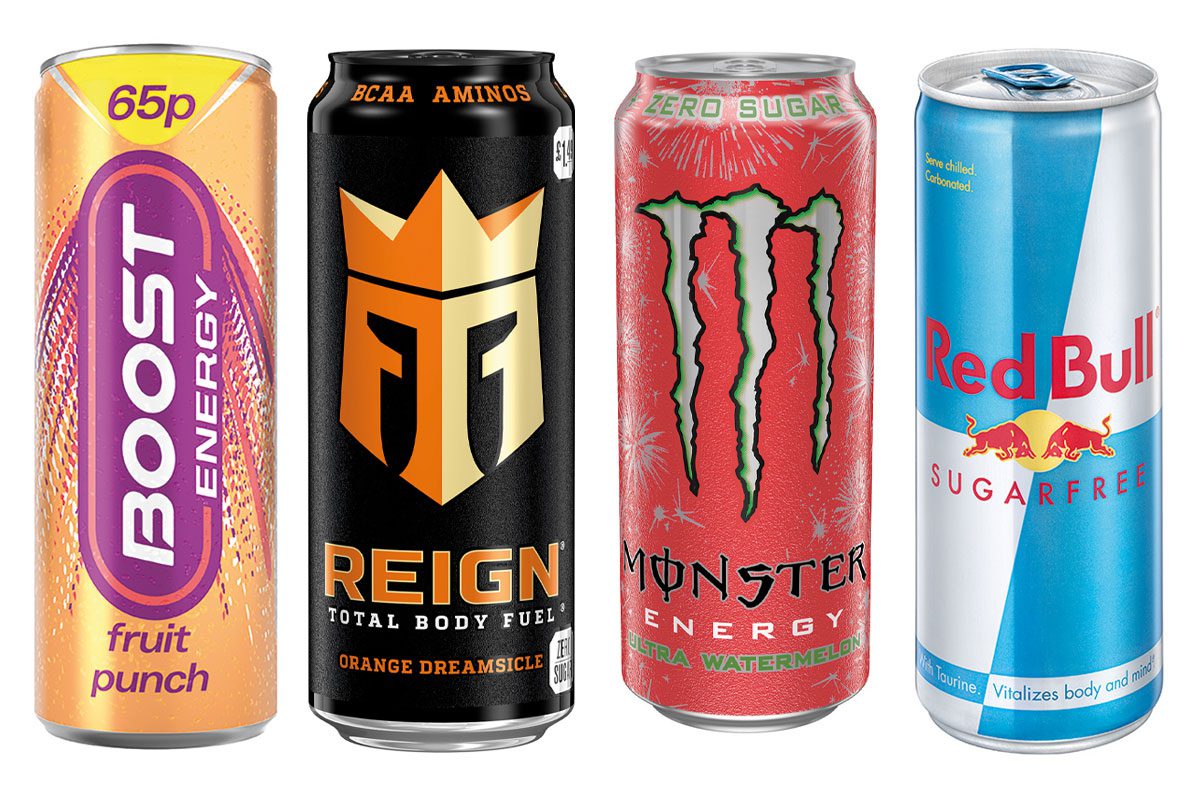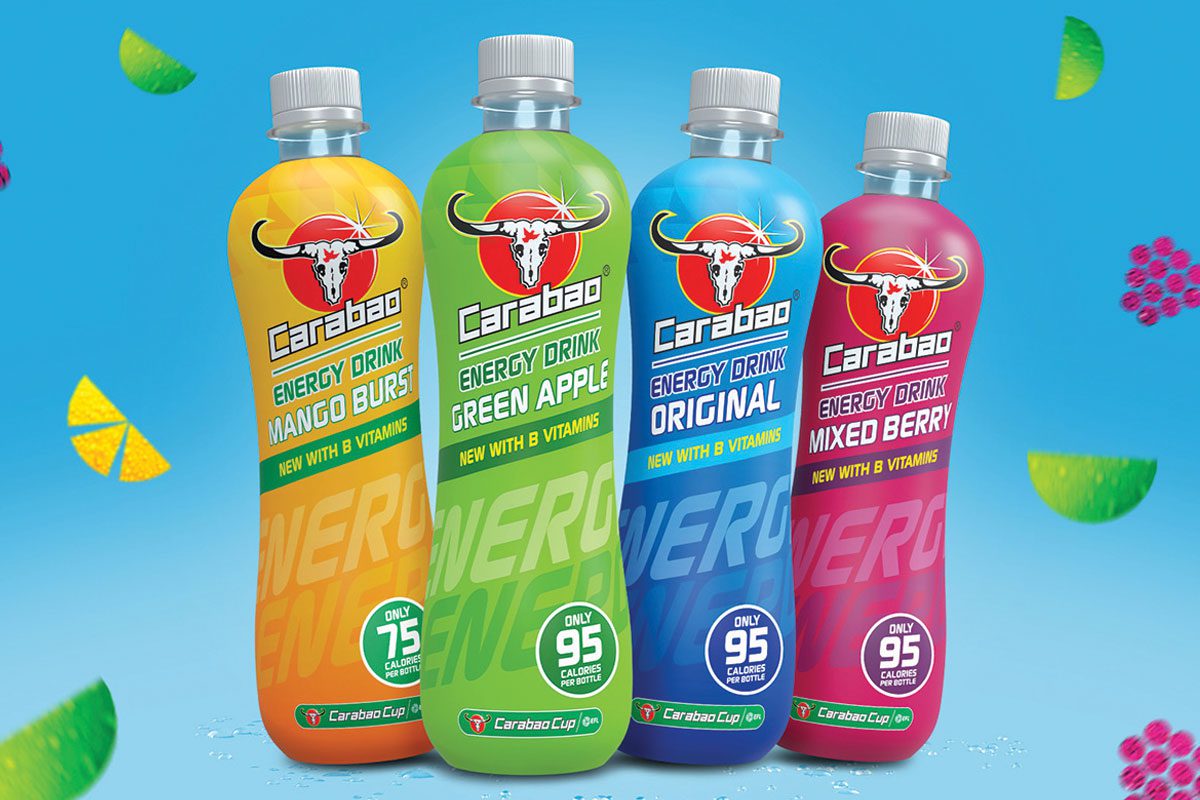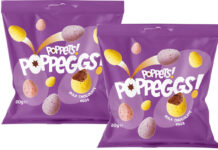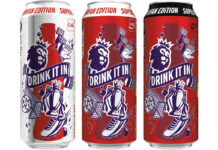
Buyers opt for low and no-sugar options
MORE and more energy and sports drinks consumers are opting for zero or low-sugar offerings.
The sector continued to grown in popularity during the last year and is now worth more than £1.7billion annually, according to analysts Nielsen.
In fact, energy is the largest soft drink category in the independent channel, which researcher IRI said accounts for £1 in every £3 spent.
So the shift to creating healthier alternatives by a number of brands is massively
important for convenience retailers as it represents a big growth opportunity.
That’s backed up by a study for Carabao conducted by Censuswide that found seven in 10 adults are concerned about sugar, a trend that has increased following the pandemic.
The research also revealed that a third of respondents would choose to give up sugar-filled drinks when looking for ways to cut their sugar intake.
Further data from Vypr suggests that 73% of frequent energy drinkers feel that responsible category consumption is important, with regulation of sugar and calories being the main drivers.
Red Bull has identified, via Kantar, that 35-year-old affluent females are the most common shopper profile for its Sugarfree drink.
A spokesperson said: “Whether exercising, working or managing a busy family life, capitalising on the demand among female shoppers for SKUs that provide the option to manage their sugar intake is essential.”
Now many major drinks manufacturers are responding to consumer demand.
CCEP senior trade communications manager Amy Burgess said: “The energy category has seen increased demand for energy drinks without sugar.
“To help retailers capitalise on this, we’ve continued to bolster our zero-
sugar offering.
“Monster Ultra is now the number one zero-sugar energy drinks range in Great Britain and continues to grow – highlighting shopper demand for great-tasting and zero-sugar products.”
Two new flavours CCEP has rolled into stores this year are Monster Ultra Watermelon and pine-apple-flavoured Gold.
Burgess explained: “The shiny gold packs are designed to appeal to new and existing Monster fans, helping retailers tap into the continued popularity of the drinks.”
CCEP has also successfully launched its Relentless Zero Sugar range, with appealing
Peach and Raspberry flavours and a bold new pack design to broaden the drinks’ appeal.
Burgess continued: “Fitness and healthier lifestyles remain a priority for consumers, and shoppers are increasingly looking for food and drink with functional qualities that can help them achieve maximum results during sports or workouts. This has given rise to the performance energy drinks segment.”
CCEP responded by expanding its Reign Total Body Fuel range last year with the launch of two new variants – Peach Fizz and Orange Dreamsicle.
Red Bull cited increased demand for functional energy among shoppers, with Nielsen data showing they are worth more than £1.2 billion annually, and said this factor ensures it continues to dominate the sports and energy sector.
A spokesperson said: “Shoppers state that they desire more physical energy than ever since lockdowns have ended, but they also want more from their purchase than ever before, seeking a balance between enjoyment, practicality and health benefits.
“Offering choice in sugar content plays a key role in the sports and energy category as consumers increasingly pick sugar-free and zero formats.”
Kantar reports sugar-free variants have been growing penetration by 58.0%. And, in independent markets, low or no-sugar variants have seen faster growth than full sugar – with 21.1% growth vs 11.5%, according to Nielsen.
Boost Drinks points to the importance of offering energy drinks in a range of sizes.
Boost Original is available in one-litre, 500ml and the firm’s leading SKU, the 250ml Original Energy.
Boost Drinks marketing and international business director Adrian Hipkiss said: “The past two years of restrictions has seen a shift in energy drink shopping habits.
“As the nation travelled less and stayed home more, on-the-go consumption became ever so prominent, resulting in a growing consumer demand for one-litre and multi-pack take home formats.
“Despite restrictions now easing and footfall rising, take home products continue to be a huge growth opportunity for retailers as shoppers continuously seek ready-to-drink, on-the-go energy quality options at everyday value prices.”
Hipkiss also recognised the importance of offering customers a variety of flavours in its energy drinks portfolio. Flavours account for 38% of sales in its Stimulation range and are up 29% year-on-year.
In fact, 39% of Stimulation shoppers make their purchase based on flavour alone, so Hipkiss said it is important to stock a variety rather than relying on just one or two.
He added that sports drinks are also bouncing back in popularity after declining sales due to lockdown restrictions.
Boost Sport holds second place in value and volume in the category, according to IRI figures, with a 49% value growth year on year.

Carabao sales controller (Scotland) Norrie Donaldson reckons the pandemic has made shoppers even more conscious of what they consume. “The desire to buy lower sugar, healthier drinks has therefore skyrocketed,” he said.
He highlighted Carabao’s Mango Burst, which is free of aspartame, as an example of the kind of healthier alternative consumers demand.
Leading brands were also keen to offer advice for driving up sales, with CCEP recommending dedicating space to best-sellers in key segments and making room for new products.
CCEP also advises having a wide range of low and no-sugar variants, placed on aisle ends and near tills.
Red Bull pointed out that shoppers only see products within a 1.3-metre breadth, so vertical blocking helps.
And Carabao urged retailers to place on-trend healthier, options at eye-level in the chiller and using a variety of POS.


















